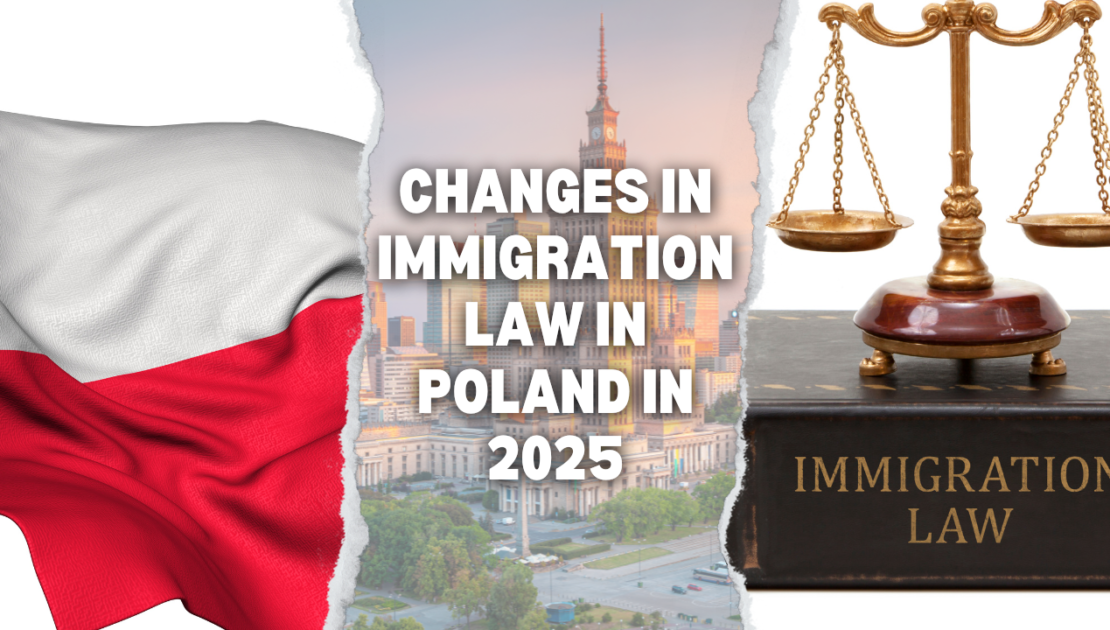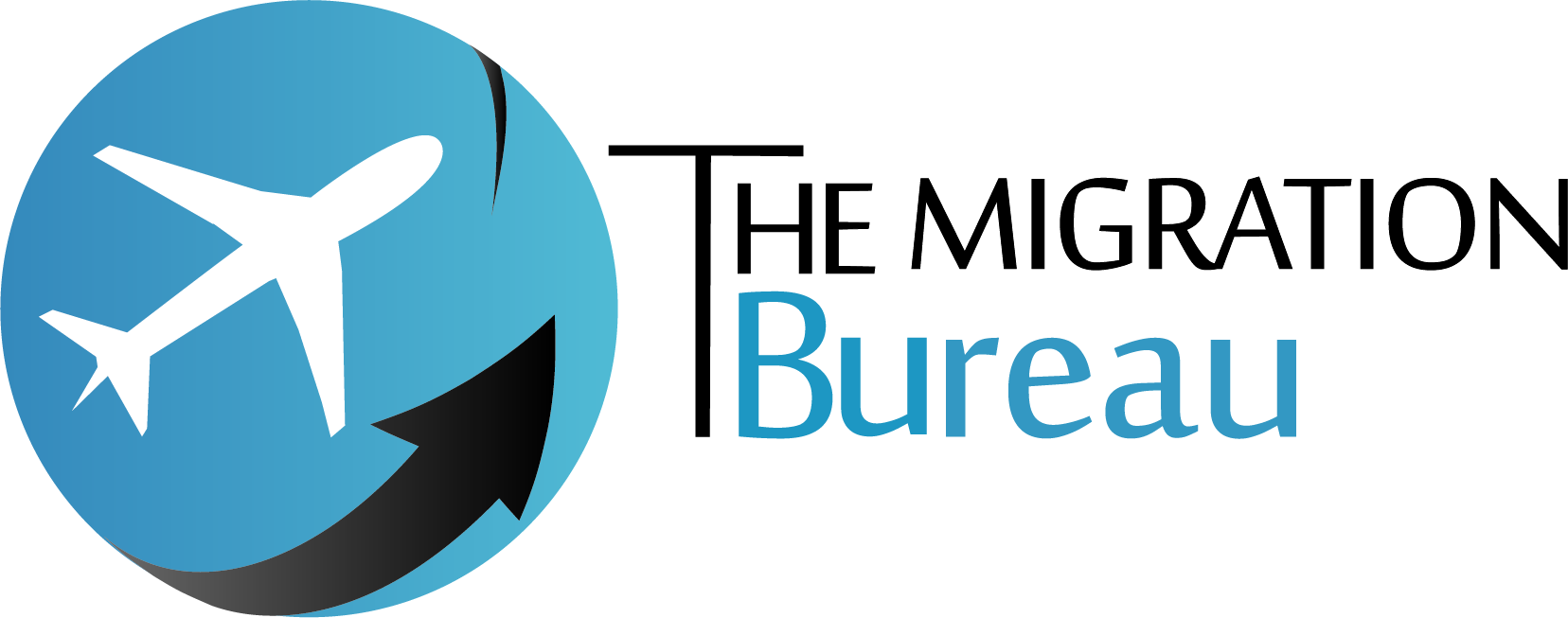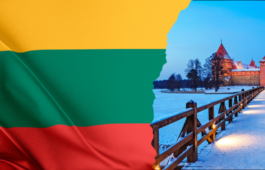- 20 January 2025
- Admin
- No Comments

2025 Poland Immigration Law Changes for Foreigners
Are you considering moving to Poland? If so, you’ll want to pay close attention to the important updates I’m about to share!
Starting in 2025, significant changes are expected to impact how foreigners can work and live in Poland legally. These changes, currently being reviewed in the Polish parliament, could have a direct effect on your plans. Whether you’re already in Poland or preparing to relocate, it’s essential to stay informed about the upcoming regulations.
These updates, set to take effect at the beginning of 2025, may shape the requirements for visas, residency, and employment. Let’s dive deeper into these legislative developments to understand what they mean for you and your future in Poland!
Legislative Changes for Foreigners Working in Poland
The proposed draft bill brings forward significant changes to the regulations surrounding the employment of foreigners in Poland. These changes are designed to:
- Simplify and streamline application procedures.
- Minimize delays caused by administrative processes.
- Fully digitize systems for employment and visa applications.
The current regulations, which were established over 20 years ago, are no longer suitable for today’s rapidly evolving labor market. The proposed updates are aimed at addressing the needs of Poland’s modern workforce while ensuring a more efficient and transparent immigration process.
Additionally, these updates are a direct response to the “visa scam” that came to light 1.5 years ago, causing public concern and highlighting vulnerabilities in the immigration system. By addressing these gaps, the new rules seek to restore trust and improve the overall integrity of employment and visa processes for foreigners.
For more details, visit: BBC News Article
Why the Need for Change in Immigration Law 2025
The Polish visa system has been plagued by significant irregularities, largely due to uncontrolled migration since 2015. These challenges arise from three key issues:
- Lack of a Comprehensive Migration Policy
The absence of a unified, well-structured government strategy has created numerous challenges in managing migration effectively. A high volume of work permits has been issued to low-skilled workers, particularly from countries identified as high-risk for migration-related issues. This has led to the misuse of Polish visas, which are frequently used for Schengen mobility or as a means of illegal migration to other EU nations. Without clear guidelines and coordinated policies, the system remains vulnerable to exploitation, undermining the credibility of Poland’s immigration framework. - Abuse of Student Visa Pathways
A significant number of foreigners have exploited student visa routes, not for genuine education but as a means to work or migrate to other Schengen states. Many universities in Poland have been admitting international students with minimal qualifications, including insufficient knowledge of academic subjects or language skills required for their chosen programs. This practice not only compromises the integrity of Poland’s education system but also facilitates improper migration, turning student visas into a loophole for avoiding standard immigration regulations. - Organizational Challenges in Residency Legalization
The process of legalizing residence permits has faced numerous organizational inefficiencies, causing significant delays in provincial offices and creating backlogs. These lengthy processing times often force foreigners to rely on temporary visas instead of properly legalizing their stay through residence permits. This dependency on visas adds to the strain on Poland’s consular services and encourages the involvement of intermediaries, many of whom engage in exploitative practices. Such inefficiencies in the system hinder transparency and make it difficult for legitimate applicants to navigate the process effectively.
These challenges have undermined the credibility of public institutions and eroded trust in the state. Reforming immigration laws is essential to regain control, fulfill Poland’s Schengen commitments, and ensure that migration contributes positively to the country’s economy and security.
Key Changes in 2025
- Complete Digitalization of Work Permit Processes
The entire process for handling work permits, including applications, decisions, and appeals, will be transitioned to a fully electronic system. Employers and foreign workers will no longer have the option to submit work permit applications in paper form. This shift to digital processing is expected to optimize resources within administrative offices, significantly reduce processing times, and improve the overall efficiency of the system. By eliminating manual paperwork, the government aims to create a more streamlined and transparent process that benefits both employers and applicants. - Elimination of the Labor Market Test (Starost Information)
Employers will no longer be required to demonstrate that local workers are unable to meet their staffing needs before hiring foreign employees. Currently, the “Starost information” serves as confirmation from local labor offices that no unemployed Polish candidates are available for a specific position, which permits the employer to hire a foreign worker. In some regions, obtaining this confirmation can take over a month or result in a negative decision, thereby preventing the employer from filling the role with a foreign worker.
Under the new system, this labor market test will be replaced with a reverse solution. If the local labor market worsens, the Starost will compile a list of occupations for which work permits will no longer be issued to foreigners. This list will be based on factors such as regional unemployment rates, industry layoffs, job demand in specific sectors, national security considerations, migration policy objectives, and local labor market needs.
- Stricter Penalties for Illegal Employment
Employers found engaging in illegal employment practices will face significantly stricter penalties. Fines will range from PLN 3,000 to PLN 50,000 for each confirmed case of illegal employment. Additionally, work permits may be denied to employers who fail to justify the necessity of hiring a foreign worker or who operate businesses primarily as a means to facilitate immigration rather than legitimate economic activity. These measures aim to deter illegal employment, protect foreign workers from exploitation, and uphold the integrity of Poland’s labor market. - Integration Programs for Foreign Workers
A range of integration programs will be introduced to help foreign workers adapt to living and working in Poland. These programs will include support for learning the Polish language, as well as training to better understand and navigate the local job market. Public employment services will establish specialized support centers designed to assist foreign workers in their integration journey. By fostering language proficiency and cultural understanding, these initiatives aim to ensure that foreign workers can fully contribute to and benefit from their roles in Poland. - Reforms to Student Visas
To address abuse of the student visa pathway, new reforms will introduce stricter entry requirements for foreign students. Applicants will need to demonstrate a minimum language proficiency level of B2 and pass knowledge or qualification tests. A national database accessible to consulates will be established to monitor foreign students more effectively. Additionally, universities will face increased scrutiny, particularly those admitting students from high-risk regions. These institutions will be required to ensure that applicants meet the necessary academic and linguistic standards, protecting the integrity of Poland’s education system and reducing the misuse of student visas. - Reforms to Work Visas
The issuance of work visas will be subject to more stringent controls to prevent fraud and abuse. Permits may be denied if there is evidence of manipulation or exploitation within the application process. Applications from key economic sectors will be prioritized to ensure that Poland’s labor market needs are met efficiently. There will also be enhanced oversight of employment intermediaries, with stricter regulations aimed at preventing exploitative practices and ensuring ethical standards are upheld in the recruitment and employment of foreign workers.
What This Means for You
These changes are designed to make Poland’s labor market more efficient and transparent. However, they also bring stricter compliance and enforcement.
For foreign expats planning to move to Poland, the 2025 immigration law changes will bring both positives and challenges:
What’s good?
- Streamlined Processes: Work permits and visa applications will be fully digitalized, reducing administrative delays.
- No More Labor Market Test: Employers will no longer need to prove that no local workers are available before hiring foreigners.
- Better Support for Foreign Workers: Integration programs, language courses, and job market adaptation services will be offered.
- Stronger Oversight: Stricter controls will ensure that immigration supports Poland’s economy and security, with reforms tackling fraud and abuse in student and work visas.
What’s challenging?
- Tougher Student Visa Rules: Foreign students will need to meet stricter language and qualification requirements.
- Stricter Work Conditions: By 2026, there may be even more stricter employment conditions for foreigners, including mandatory work contracts.
- Regional Restrictions: In certain regions, there could be limitations on which jobs foreign workers can apply for, depending on local employment conditions.
Overall, these reforms are designed to modernize and streamline Poland’s immigration and labor systems, addressing long-standing inefficiencies and aligning them with the country’s current economic and security priorities. However, for many expats, these changes may also introduce new challenges, particularly due to the stricter visa requirements and enhanced regulations surrounding employment and residency. With tougher compliance standards and increased scrutiny on applications, it will become even more critical for foreigners to ensure they meet all the necessary criteria before relocating to Poland.
For expats planning to move to or continue living in Poland, staying informed about these new rules is essential. Consulting with immigration experts can provide valuable insights and guidance on navigating the evolving regulations effectively. By understanding the reforms and preparing thoroughly, expats can better position themselves to succeed in Poland’s changing immigration landscape. Additionally, raising awareness about responsible migration practices will help individuals and employers avoid common pitfalls and foster a smoother transition into the country’s labor market and society.










